FRIEDKIN UNCUT (2018)
The director of The Exorcist and The French Connection, now 83 years old, is interviewed about his career...
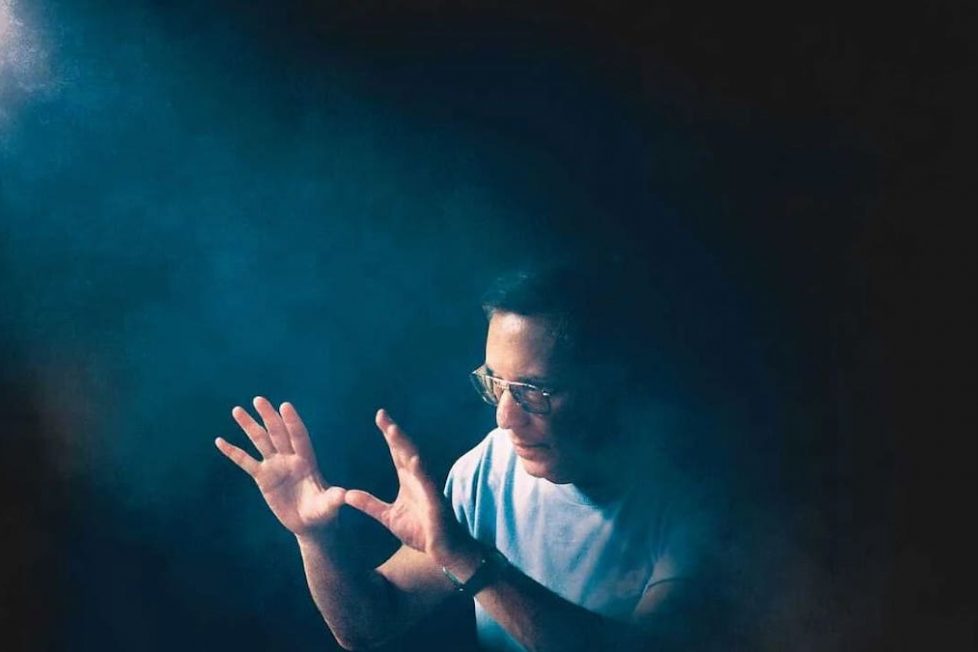
The director of The Exorcist and The French Connection, now 83 years old, is interviewed about his career...


For a big Hollywood name, William Friedkin’s something of an oddity. Only two of his 20 films as director, The French Connection (1971) and The Exorcist (1973), have become truly famous beyond cineaste circles, and both date from early in his career.
Certainly, Sorcerer (1977) has a fierce cult following, To Live and Die in L.A (1985) is highly regarded by some (though despised by others), and Cruising (1980) remains fascinating and controversial despite its profound dramatic problems. The rest, however, are barely heard of. And it’s a pity that Francesco Zippel’s determinedly positive documentary Friedkin Uncut focuses so intently on the “big” movies (especially Exorcist and French Connection) without making any connections to more obscure parts of the Friedkin oeuvre.
As a result, while there’s plenty of material here about a few specific productions (albeit not much of it that’s new), and about Friedkin’s directing practices, little sense emerges of what “a Friedkin film” is. There’s no attempt to tease out some of the strikingly varied themes that run through his work (insanity, jobs, machinery, male milieus, the randomness of fate), and there’s comparatively little about the films themselves, as opposed to their making.
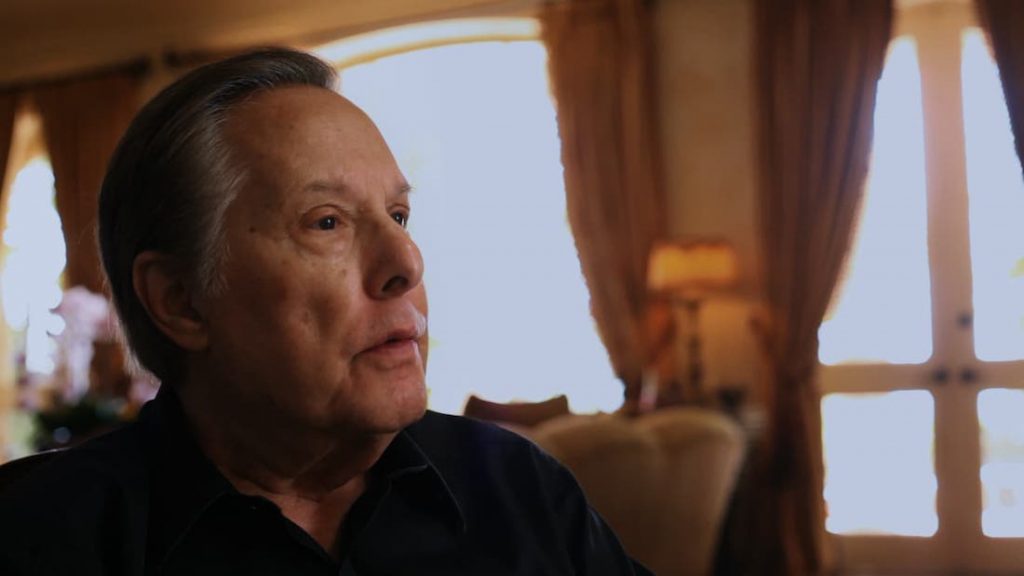
This is, in short, a documentary about Friedkin which purports to cover Cruising (a movie concerning a serial killer in a gay subculture) yet shows no interest in how it might relate to his other gay-scene film The Boys in the Band (1970), or his other serial-killer movie Rampage (1987).
In part, one suspects it’s a reluctance on the part of Zippel to engage with Friedkin’s less successful outings—critical failures like Jade (1995) or The Hunted (2003)—but such a narrow Greatest Hits approach also excludes fascinating movies like the remarkable psychological horror Bug (2006). The Exorcist was notable for elevating horror, hitherto seen as a rather grubby genre, into realistic and intelligent territory; how intriguing it would’ve been to put it side-by-side with Bug, which was 30 years later but also dealt, in its way, with a possessed soul.
Instead, after a brief introduction with Friedkin speculating on Hitler, Jesus, Good and Evil, the movie dives straight into The Exorcist and spends the next 45-minutes on this and The French Connection. There follows a longish sequence on Sorcerer, which Friedkin describes as his “most important” film, and then briefer coverage of Cruising, To Live and Die in L.A, and the outstanding late work Killer Joe (2011), as well as—unexpectedly—Friedkin’s foray into opera direction.
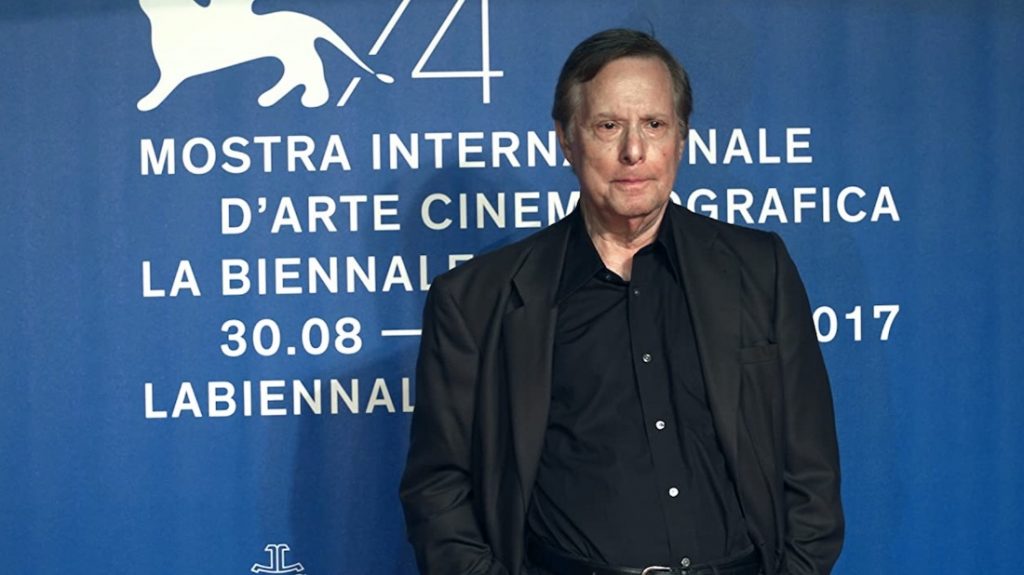
Throughout, the tone is reverent, even adoring, with a lot of footage of Friedkin being acclaimed at festivals. And it’s unquestioning, too. It accepts at face value, for example, the claim that Friedkin’s debut The People vs. Paul Crump (1962) was, as one interviewee puts it, a “film that saved a man’s life— although in reality that documentary was, at most, just one of many factors that contributed to rescuing the convicted murderer Crump from the electric chair.
There are some fun anecdotes. For example, Quentin Tarantino recounting how The Exorcist was the first movie his usually tolerant mother forbade him to see, or Willem Dafoe recalling how close the Live and Die in L.A production came, in filming the movie’s forgery scenes, to actually breaking the forgery laws. (Dafoe also makes one of the rare connections between Friedkin films, pointing out how The French Connection and To Live and Die in L.A both act as “time capsules” of specific cities at specific moments.)
Few of these behind-the-scenes tales will be novelties to anyone familiar with books such as Nat Segaloff’s Hurricane Billy or Friedkin’s own The Friedkin Connection—the story of Jason Miller replacing Stacy Keach in The Exorcist, for example, appears in Friedkin Uncut in almost exactly the same form as in the director’s book. Still, they’re mostly well told.
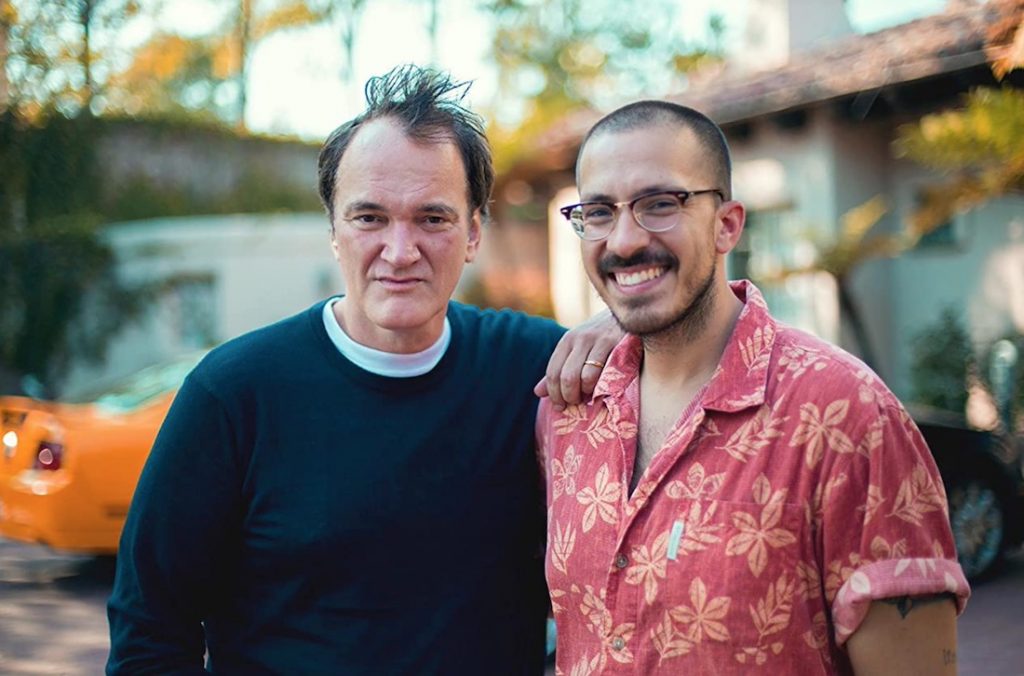
A much more serious flaw is the lack of interviewee identification. Most of us will be able to recognise Tarantino, Dafoe, or Matthew McConaughey, maybe Francis Ford Coppola too. But others like Wes Anderson (a collaborator with Zippel on several films), Philip Kaufman, and Dario Argento, are not familiar faces, even if they’re famous names. And by never making it clear who they are, Friedkin Uncut makes it tough for the viewer to put their remarks into context.
Where it does succeed is in illuminating Friedkin’s own methods of filmmaking and in identifying the fellow filmmakers he respects. Often more interesting when talking about practicalities than when indulging in Werner Herzog-like philosophising, Friedkin recalls how seeing Citizen Kane (1941) as a young man prompted an interest in “the power of film to go so far below the surface of human lives”, but he rejects the idea of striving consciously to create art; instead, he says, one should aim for the “utmost professionalism in the telling of the story” and art might emerge from that.
His “utmost professionalism” is far from obsessiveness, though. He calls himself a “one-take guy”, claiming that “rehearsal is for sissies”. He pushes his actors, and won’t tolerate phoniness, but gives them freedom too. “I’m not looking for perfection,” he says, “I’m looking for spontaneity.”
The directors he admires include Argento, Clouzot (whose 1953 The Wages of Fear Friedkin kind-of remade as Sorcerer), and Costa-Gavras (whose 1969 Z awakened him to the potential of telling fictional stories in documentary style, a strategy that’s perhaps most to the fore in Cruising). Richard Brooks is mentioned, too, tellingly given the resemblances between Cruising and Brooks’s Looking for Mr. Goodbar (1977).
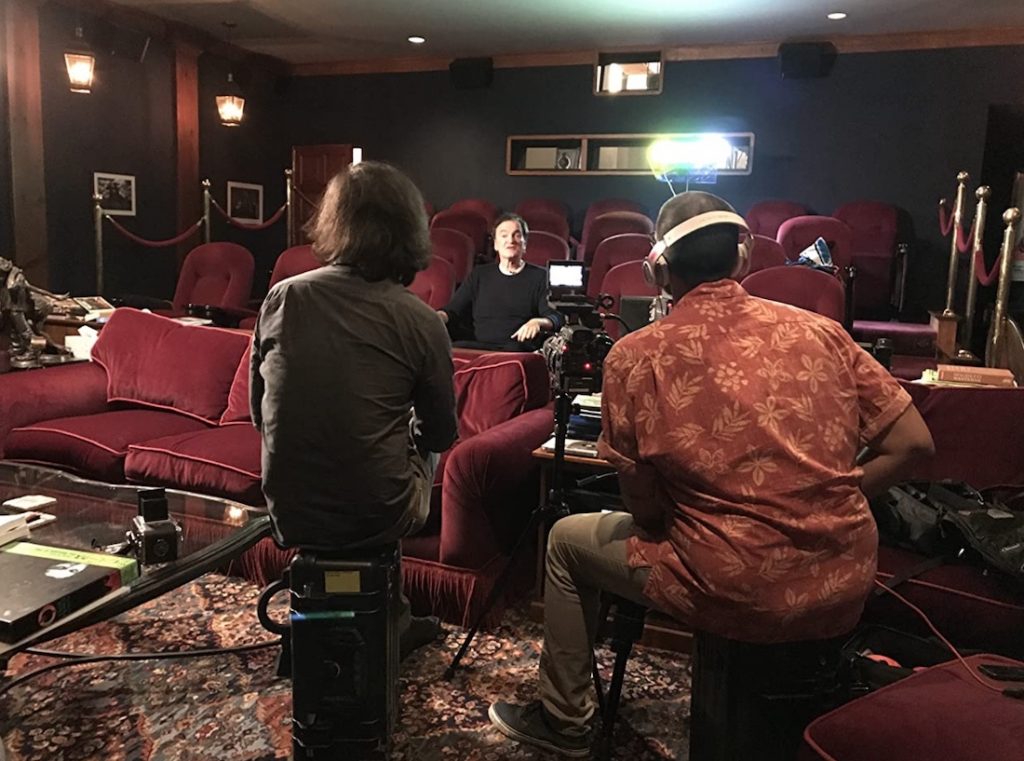
But there are also less obvious names: Chaplin, Keaton, Stanley Donen and Billy Wilder are all surprising, given the distinct lack of light-heartedness in Friedkin’s work. And cinema of much earlier periods seems to resonate strongly with him—he has Sergei Eisenstein drawings on his wall, and Friedkin Uncut includes excerpts from his 1974 filmed interview with Fritz Lang.
Among modern directors, meanwhile, Kathryn Bigelow is hailed as the “best American filmmaker today” and Damien Chazelle (La La Land) as “possibly the future of American cinema” (Friedkin seems to relish rather Trumpian superlatives).
It’s Chazelle, fittingly, who sums up the subject of this documentary best: “He went in all these different directions yet he never made a movie that wasn’t a Friedkin movie, that didn’t have his stamp on it.”
The weakness of Friedkin Uncut, however, is that it never gets to grips with that that stamp actually is. And by the end, even if we’ve picked up a few interesting bits of Friedkin trivia, we’re not much closer to understanding how the same director could make movies as wildly different as The Exorcist, The Boys in the Band, and Killer Joe.
Friedkin is evidently interested in the philosophy of what he does, he seems to have many ideas about the world and how cinema relates to it, but Zippel’s film barely begins to clarify them.
ITALY | 2018 | 106 MINUTES | COLOUR | ENGLISH

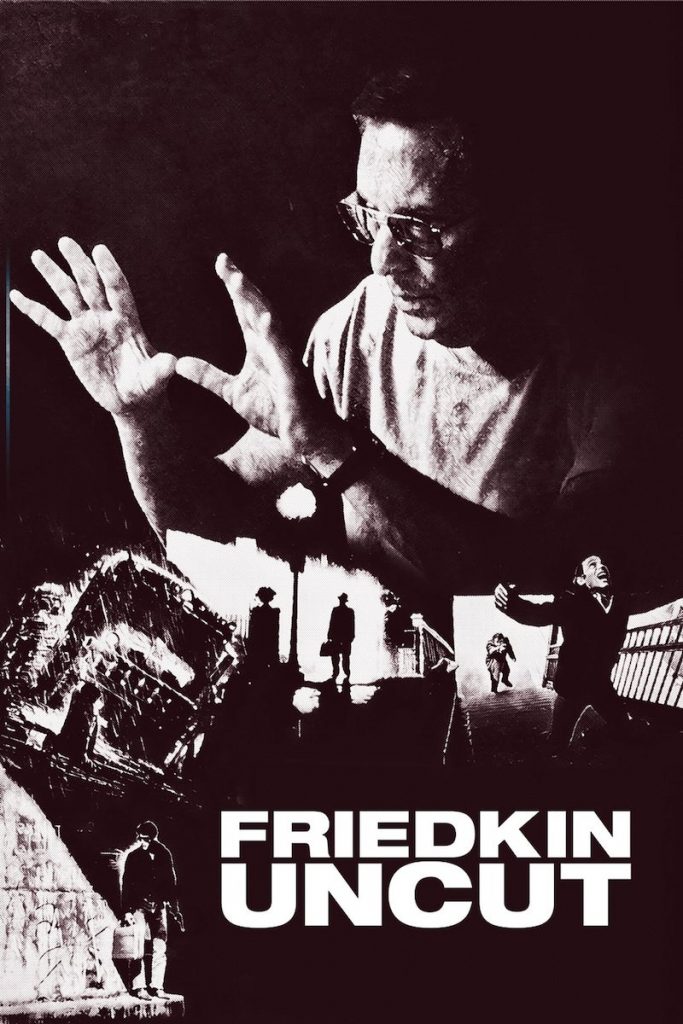
writer & director: Francesco Zippel.
starring: William Friedkin, Wes Anderson, Dario Argento, Samuel Blumenfeld, Ellen Burstyn, Damien Chazelle, Francis Ford Coppola, Willem Dafoe, Caleb Deschanel, Gina Gershon, Walon Green, Randy Jurgensen, Philip Kaufman, Matthew McConaughey, Zubin Mehta, Antonio Monda, Gianandrea Noseda, William Petersen, Quentin Tarantino, Michael Shannon, Juno Temple & Edgar Wright.
